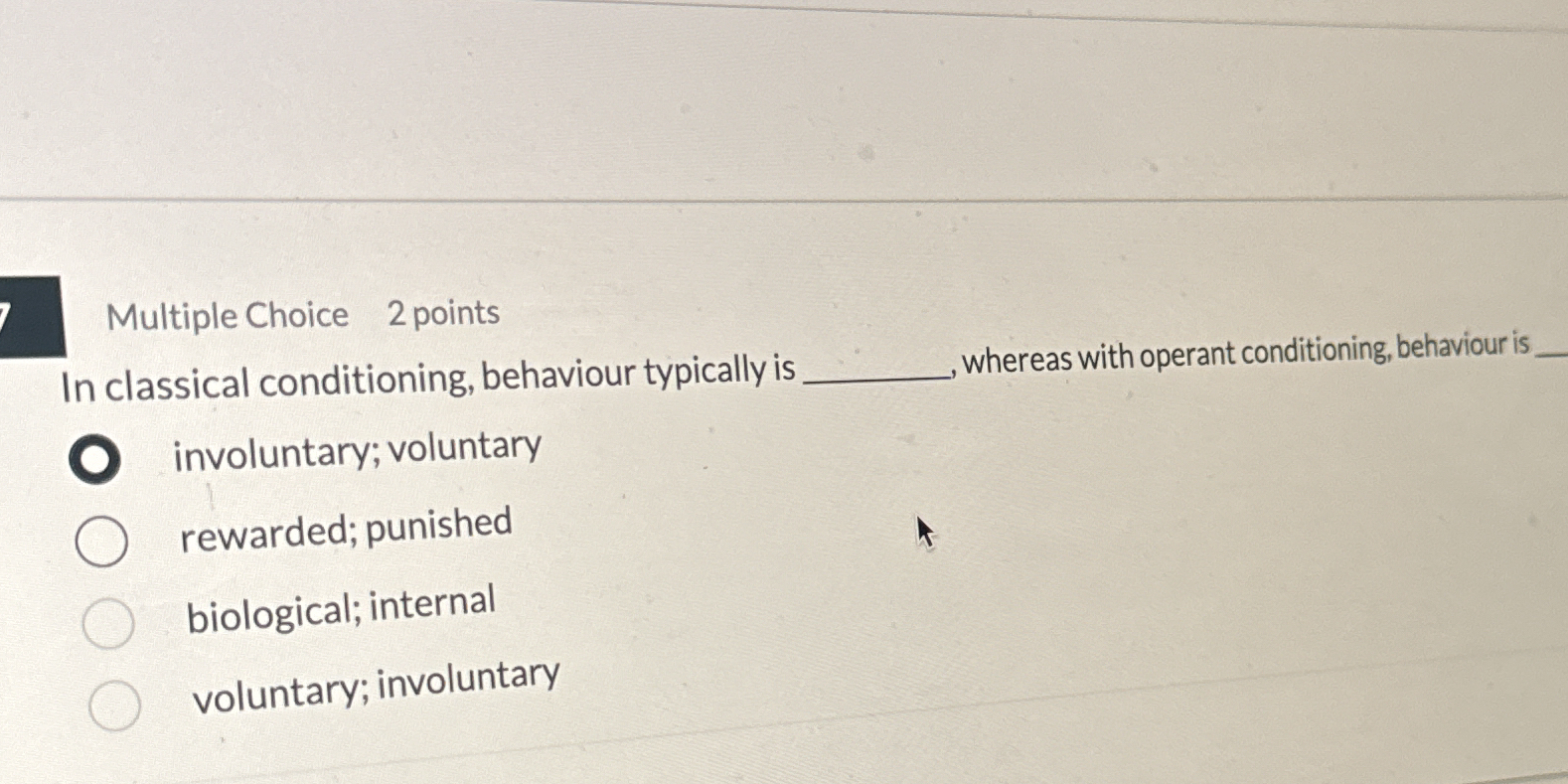In classical conditioning, behaviour typically is __________, whereas with operant conditioning, behaviour is __________.

Understand the Problem
The question is asking about the differences in behavior typically observed in classical conditioning versus operant conditioning. It seeks to fill in the blanks with appropriate terms related to the nature of behaviors in these two types of conditioning.
Answer
involuntary; voluntary
The final answer is involuntary; voluntary.
Answer for screen readers
The final answer is involuntary; voluntary.
More Information
In classical conditioning, behaviors are reflexive and automatic. In contrast, operant conditioning involves behaviors that are controlled by consequences and are voluntary actions.
Tips
A common mistake is confusing the reactive nature of classical conditioning with the proactive nature of operant conditioning.
Sources
- Chapters 1-8 Flashcards by Maria Tellez | Brainscape - brainscape.com
- Operant vs. Classical Conditioning - Verywell Mind - verywellmind.com
AI-generated content may contain errors. Please verify critical information